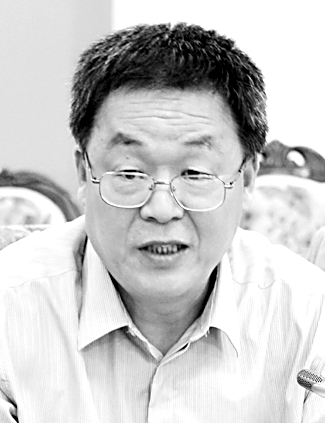YU WUJIN:The “Chinese Dream”— a common dream for all

To achieve the “Chinese Dream” is to rejuvenate the Chinese nation, President Xi Jinping said at the closing session of the 12th National People's Congress. Amorphous in definition, the “Chinese Dream” could have many interpretations. From its inception, humanity has always reached for various dreams; since they became a people, the Chinese have always had a “Chinese Dream”. If we try to understand the “Chinese Dream” from such a broad conception, however, then the meaning will become obfuscated.
I strongly agree with President Xi Jinping’s definition of the “Chinese Dream”, that is, as the greatest ideal for the Chinese people in modern times, the dream to realize national prosperity, national rejuvenation and the happiness of the people. This articulation not only deeply embodies the ideals of the Chinese people today, but also profoundly reflects the Chinese tradition of making unremitting effort in the pursuit of human progress.
At the root of the Chinese dream is that it is above all an inclusive and universally beneficial dream—its realization will not only benefit the people of China, but all citizens of the world. Simply put, to pursue the “Chinese Dream” is to pursue the co-existence and simultaneous thriving of all nations and ethnicities, a thriving that is never attained at another party’s expense.
The “Chinese Dream” is full of hope. The Chinese have lived on this soil since ancient times. They are a peace-loving people. Despite suffering a century of oppression and war, the Chinese established a new China through determination and struggle, embarking on a novel path of peaceful development. Rather than step on other nations to achieve its aims, in realizing the “Chinese Dream”, China will only bring more opportunities for more nations.
The narrative of Chinese modern history is an unfurled handscroll depicting the Chinese people resisting foreign invasion and seeking the nation’s independence and liberation. As news of the October Revolution reached the ears of China, the spirit of Marxism spread. In 1921, the Communist Party of China was founded. From then on, the Chinese revolution has been carried out with successive victories.
Throughout the May 4th Movement in 1919 to the founding of New China in 1949, including the War of Resistance against Japan,the Chinese suffered numerous hardships, especially bloody wars. The spirit which sustained their tenacious struggles was the spirit of “Chinese Dream”. Only by reading left over writings of revolutionary martyrs can we fathom the depth and intensity of their yearning for our nation’s rejuvenation, for a new China and the happiness of the future generation—this is the yearning from which the great spiritual strength of every revolutionary was hewn. This strength is uncurbed and invincible.
In fact, such a great spirit runs through the core of China’s glorious traditions, and these traditions are incorporated in our present ideal. Tradition plays an integral part in the dream of rejuvenating the Chinese nation. Our traditional values are consistent with this present ideal. It demonstrates that “Chinese Dream” is not just a fickle daydream, but a dream imbued with rich historical connotations. Embedded in this dream is the suffering undergone by generations of Chinese, and their resolution and firmness in pursuing and realizing this great spirit.
The practice of the “Chinese Dream”, and its ultimate achievement, is a topic inextricably linked to the academic community. In this process, they should by no means take the role of bystanders; on the contrary their part is crucial. From my perspective, their influence is primarily reflected in three facets.
First, it falls on scholars to fuel the discourse around the topic, interpreting and articulating the definition, characteristics and nature of “Chinese Dream” precisely. They must distinguish it from the American Dream and the European Dream.
Correspondingly, academia must build the theoretical groundwork. Fundamental concepts such as “country”, “nation” and “people” are all collective in connotation. They contrast sharply with “individualism” and “liberalism”—terms at the backbone of theories advocated by Westerners. These collective concepts also speak to the overall theme of serving the people of the Chinese Communist Party and the values therein. The “Chinese Dream” is a beacon enlightening the collective thought. It will continuously play an instrumental role in the future China’s socioeconomic development.
Lastly, the Chinese Dream is nothing to be considered pedestrian. It is universal among Chinese people, and imbued with historical meaning. As such, it requires Chinese scholars to reexamine modern Chinese history, with an eye to exploring the rich intellectual resources of undergirding it. Eventually, the fruits of this research will connect with present thinking on this “ideal”, bolstering it as a significant intellectual driving force.
Yu Wujin is director of the Center for Contemporary Marxism in Foreign Countries at Fudan University.
The Chinese version appeared in Chinese Social Sciences Today, No. 433, March 29, 2013
Translated by Feng Daimei
Chinese link:
